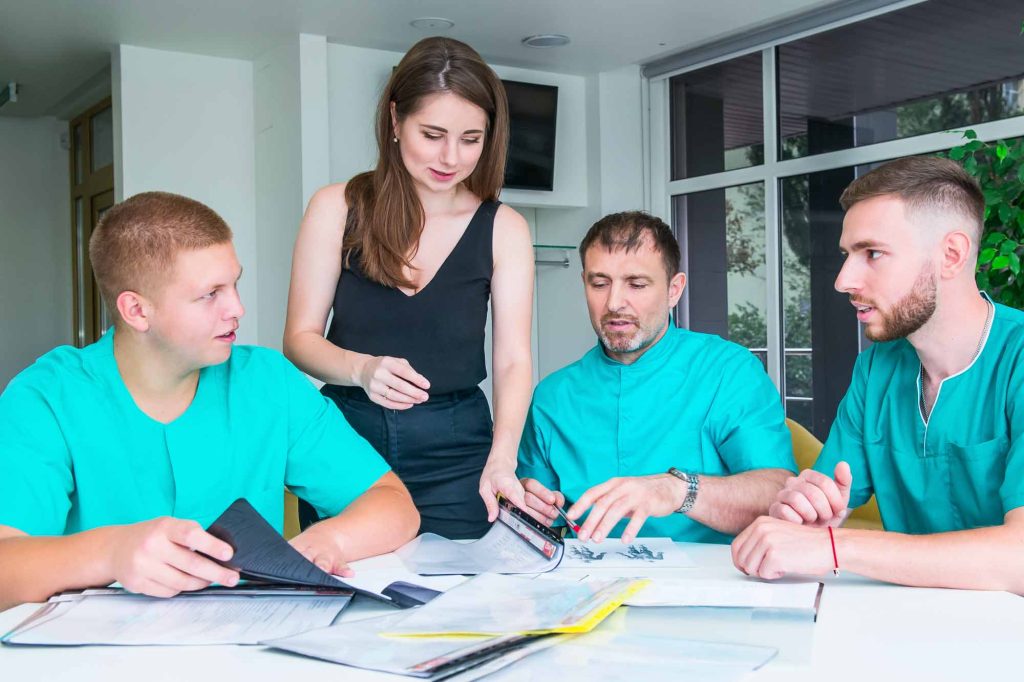The benefits of mentoring
by Anneka Guray

Anneka Guray discusses how mentor training for the IDHA came about, how useful it can be and how mentoring is practised.
In late 2023, the Irish Dental Hygienists’ Association (IDHA) began its mentoring programme journey. Our past president Linda Phelan’s concept was four years in the making. Her vision was to empower members, arming them with support to help our profession thrive.
I recall the profound enthusiasm I felt some four years ago when Linda first announced it as an idea. She was speaking on our online conference during COVID-19 times. As a delegate at the time, I thought about how fundamental this could be for newly qualified dental hygienists. As a new dental hygienist faced with a challenge, I would have longed for a supportive network akin to Linda’s.
Isolation and burnout are unfortunate stresses many of us face may in the dental profession. They leave us uncertain about where to seek guidance for our concerns. Having access to a mentor would have offered me invaluable insights and solutions to navigate the challenges I encountered.
An effective approach
Linda and the IDHA committee explored various strategies that could be implemented to kickstart this programme, looking to answer two key questions:
- How could we protect and safeguard our members, mentors and potential mentees?
- How could we ensure the mentoring service the IDHA sought to provide is delivered in a manner that is beneficial and adheres to a high standard?
It was determined that the most effective approach was to provide training to those interested in becoming mentors to withstand to these criteria. We were fortunate to have dental educator Siobhan Kelleher propose a course – ‘Postgraduate certificate in the principles and practice of mentoring and coaching in dentistry’ – thought by herself and Fiona Ellwood, who’s a mentoring expert, dental educator and doctoral researcher.
An email was sent to our members last year, recruiting potential mentors. Nine members expressed interest and subsequently signed up to the training.
A journey of discovery
When we think of mentoring or coaching in the traditional sense, we may think of seeking guidance and wisdom from more experienced professionals than ourselves. Or we expect the mentor to highlight potential pathways we could take to better ourselves in our careers. On beginning this course, this was certainly my idea of mentoring. It turned out, however, my concept wasn’t exactly it.
On learning this, I had a sense apprehension and uncertainty with what lay ahead. As it turned out, the outcome was far better than I could have imagined. Fiona and Siobhan delivered an exceptional course that took us on a journey of discovery. It changed the way I fundamentally approach a professional challenge. Mentoring can be useful at all stages of our careers to navigate our professional pathways and progress to new levels.
What really is mentoring?
The European Mentoring and Coaching Council (EMCC) defines mentoring as ‘mentoring is a learning relationship, involving the sharing of skills, knowledge, and expertise between a mentor and mentee through developmental conversations, experience sharing, and role modelling. The relationship may cover a wide variety of contexts and is an inclusive two-way partnership for mutual learning that values differences.’
At its core, mentoring adopts a person-centred approach that helps the mentee to reach solutions to their professional issues, helping to answer questions such as:
- What would you change about your current role?
- What is your ideal situation?
- How would you like to excel?
It ultimately helps us to excel in our profession.
It can be carried out through the use of established mentoring and coaching models, such as Yugrow, Oskar and the skilled helper model. These tools can help us to find the real story beneath the surface and work towards finding the mentees own achievable solutions. It can begin with the issue at hand, then finding potential solutions and making a plan to implement these solutions.
Open questioning is used by the mentor to explore the mentees mind. This opens them up to solutions they may not have considered implementing. SMART goals are useful to motivate the mentee. It helps them to focus on planning and achieving their desired outcomes.
How is mentoring practised?
Effective mentoring hinges on establishing a foundation of trust and confidentiality between the mentor and mentee. The mentor upholds the highest standard of confidentiality.
Mentoring is ultimately led by the person seeking mentorship. A mentoring contract is shown to the mentee that outlines the parameters of the mentoring process, including the duration and frequency of sessions. If the mentee is satisfied with these terms and is happy to proceed, a number of sessions are decided upon over a period of time whereby a mentor and mentee meet.
Mentor supervision is carried out on an annual basis to ensure mentors are withholding to high standards of mentorship and are practicing in a safe manner.
Conclusion
The significance of a mentor-mentee relationship in dentistry should not be underestimated nor overlooked. Mentoring has been shown to play a pivotal role in supporting professionals on their career journey.
We are very fortunate as an organisation to be able to provide this facility for our members to drive growth and development in our association.
The IDHA annual scientific conference will take place on 11 and 12 October 2024 in the Galway Bay Hotel, Galway. For more information, visit idha.ie.
References
Holt VP, Ladwa R (2008) Mentoring. A quality assurance tool for dentists. Part 1: the need for mentoring in dental practice. Prim Dent Care 15(4): 141-6
Nathwani S, Rahman N (2022) Growing in dentistry: mentoring the dental professional. Br Dent J 232(4): 261-266

